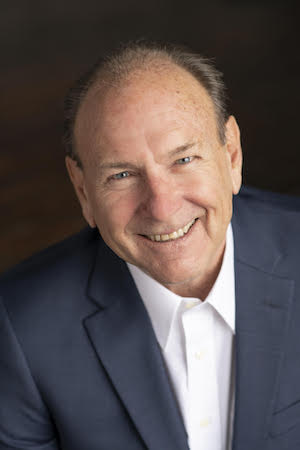Schuetz: Nevada’s Tarnished Gold
The reputation of the regulatory body in the original gambling state ain’t what it used to be
7 min

“The greatness of a man is not in how much wealth he acquires, but in his integrity and in his ability to affect those around him positively.”
— Bob Marley
I am fond of looking back over my career and suggesting that when I entered the gambling business, it was noteworthy for the presence of members of organized crime. More than 50 years later, I am convinced that gambling is now an industry characterized by unorganized crime.

In the old days, there were well understood rules, and back then, a handshake meant something. Also, if badness needed to happen, it happened out of town. Today, that old-fashioned notion of honor seems to be nothing more than a pipe dream, and a handshake is something that their lawyers can argue about with your lawyers.
In the late 1970s, I had the opportunity to meet and visit with the key folks who established the gaming regulatory machinery for Nevada. I define the period when the model was developed as the years 1945-66.
One of the first people I met was Mary Ellen Glass, who oversaw the Oral History Collection at the University of Nevada, Reno. I was seeking my Ph.D. in economics at the University of Utah and wanted to write about gambling for my dissertation. This led me to Reno to discuss with my old professor friends Bill Eadington and Glen Atkinson. Glen pointed me toward Ms. Glass.
Glass was a noted historian and writer in Nevada, covering various issues and causes. As head of the Oral History Collection, she had expended a great deal of energy in capturing the oral histories of those people who had shaped the development of casino gaming and its regulation within the state.
Mary Ellen also interviewed and transcribed many of the subjects herself. The result was that she had become a subject-matter specialist in gaming and its regulation in Nevada — and Nevada was the first state to offer gaming regulation.
I was blessed because she was incredibly generous with her time, knowledge, and insight with me.
Ms. Glass also introduced me to many of the history makers, including Ed Olsen (chair of the Nevada Gaming Control Board, 1960-66), Robbins Cahill (head of the tax commission that regulated casinos from 1945-55 plus first Nevada Gaming commissioner), and Alan Bible (U.S. senator for Nevada from 1954-74, and Nevada AG from 1942-50).
Aside from having the opportunity to visit for many hours with the above people, I was lucky to receive a generous amount of time given by Grant Sawyer, governor of Nevada from 1958-66, and many other individuals who were material in shaping the Nevada gaming regulatory model during a formative period of the state’s gaming history.
The way this worked was that I would talk to someone, and they would indicate that I needed to speak to someone else, and on it went. I ended up doing this daisy chain full-time for most of a summer.
A common element of these people was their passion for the state of Nevada and the importance of developing a sustainable gaming industry. I believe that the passion these people invested in the state and its gaming industry later resulted in the moniker “The Gold Standard” being appropriately attached to the regulatory agencies in the state.
However, what we have seen lately has made the association between the Gold Standard and the Nevada gaming regulatory assets seem more like a punch line.
Misstep after misstep
Where to start?
The fact that several women reporters from the Wall Street Journal (with a later assist from the Massachusetts Gaming Commission) were able to end Steve Wynn’s casino career while the Nevada gaming regulators fiddled has to be one of the top five. This was complemented by several Wynn employees who demonstrated that if the price and perks were right, they could ignore their fellow employees being abused. Yes, true professionals.
Then, of course, there was the whole Apollo/Caesars thing. What was it that Leon Black paid Jeffrey Epstein $158 million for? And the relationship with Guzel Ganieva was certainly curious, and very expensive. This seemed to escape notice by Nevada’s regulators (and many others) as they looked to ensure that the personalities involved in Nevada gaming operated with a high level of character, honesty, and integrity.
Then there is Jim Murren, who, as head of MGM Resorts International, found it appropriate to work to sue the victims and survivors of the largest mass murder in the history of the United States. This was met with a high level of shock and disdain. He followed this up by apparently mishandling a credible communication regarding the behavior of Scott Sibella, which resulted in a massive fine for MGM and embarrassment for Nevada, and presently seems to be capping that all off by believing that he can both regulate and compete against Las Vegas gaming companies.
It is also impossible to ignore the story of Sibella, who seems to have caused a lot of unwanted attention from the federal government and later the Nevada Gaming Control Board for two separate casino companies. And as things now stand, he has been thrown out of the industry in Nevada (and probably beyond) for five years — and that story is apparently still evolving. A fascinating aspect of this story is that Mr. Sibella appears to think he is the victim in all of this, seems to believe that the person who runs the casino is not a part of the compliance infrastructure, and is now trying to sell his latest excuse for his lack of character as “all of the kids were doing it.”
Revolving doors, forward and reverse
I would like to suggest that Brin Gibson be considered for inclusion on this list of people who have placed their personal enrichment well ahead of any image damage that might befall the state and the gaming industry.
Mr. Gibson comes from a powerful political family in Southern Nevada. His father is James B. Gibson. The younger Gibson’s background is discussed here, describing him as a longtime state of Nevada employee who worked closely with gaming issues.
I have written about Brin before and will present the Cliff’s Notes version here:
Essentially, Mr. Gibson was very involved with gaming issues within the government of the state of Nevada and then accepted a job with the law firm Brownstein Farber Hyatt Schreck, LLP. The press release by the firm noted that one of his areas of involvement with the firm would be gaming matters. This all makes sense to this point.
As a historical aside, the last name listed of that firm was that of Frank Schreck, who heads the firm’s gaming practice. Mr. Schreck gained notoriety for helping develop the settlement between Mr. Wynn and a manicurist who claimed Mr. Wynn raped her in his office in 2005. What was curious about this $7.5 million settlement, and least in the eyes of the Massachusetts Gaming Commission, was that it was “structured for utmost secrecy.” This secrecy appears to be designed to keep it from the firm’s regulators, management, and board of directors, which consisted of Mr. Wynn’s wife at the time.
Returning to the topic of Mr. Gibson, after his state service, he joined the Schreck law firm. The state’s governor then offered him the position of chairman of the Nevada Gaming Control Board. In short, not only did he go through what is known as the revolving door from government service to private enterprise, but he later reversed course and went through the revolving door in reverse by returning to government.
After Gibson became chair of the Nevada Gaming Control Board, the law firm he worked with appeared before Chairman Gibson and the board, representing clients in a $6 billion transaction. An interesting exchange begins at the 17-minute mark here, which seems to laugh off any notion of a potential conflict. One notes that the individual appearing before Chairman Gibson is Frank Schreck, head of the gaming group of the firm that Chairman Gibson recently had worked for. And did I mention this was a $6 billion transaction?
It would seem that a minimum standard would have been for Chairman Gibson to provide an expert opinion letter regarding the absence of a conflict and submit it to the meeting’s minutes. But such caution is apparently not the Nevada way. It was easier to declare no conflict by fiat and laugh it off.
Well, the $6 billion transaction was approved, and that was that.
Or so I thought.
It seems that Brin Gibson opted to step down from his chairmanship of the NGCB nine months after the $6 billion transaction, and, two months after that, announced he would be returning to Brownstein Farber Hyatt and Schreck, LLP. This was his third trip through the revolving door.
Upon returning to the firm, one of Gibson’s first projects was to speak on behalf of the Las Vegas Sands to legalize destination casino resorts in Texas. Oh, and Las Vegas Sands was the selling party of the $6 billion transaction that Gibson voted to approve back when he spent his short tenure as chair of the Nevada Gaming Control Board.
Image and integrity
I started this discussion by mentioning the men and women in Nevada who worked to build a regulatory environment to make gaming sustainable in Nevada. The most critical point they understood was that they needed to prove that they could create a sound regulatory environment because if they didn’t, the feds would move in, and gaming in Nevada would be dead.
They also understood that the integrity of the gaming regulatory machinery in Nevada was paramount, for without it, the industry’s image would be damaged.
When a gaming industry’s image becomes damaged, it is hard to fix, and the whole point of the development of the Nevada regulatory model was to ensure that the image of gaming was a well-regulated activity and not associated with inappropriate individuals or actions.
Unfortunately, it seems that much of the gaming news coming out of Nevada for the last five or six years is less than impressive, and the Nevada Gaming Control Board is continually being embarrassed by giving the appearance they are not on top of things. The Nevada regulators seem to get most of their information by the actions of the feds or from the press. Nevada now appears to resemble a “good old boy” network rather than an efficient and effective regulatory environment.
I am sorry if I am dragging mud on anyone’s carpet, but it may be time for Nevada and a great many other states to understand that the regulators work for the people and not the politicians and the industry. If they don’t get this right soon, the feds will be moving in, and they have clearly signaled this.
I suggest that few in the industry will like how that story ends.
—
Richard Schuetz entered the gaming industry working nights as a blackjack and dice dealer while attending college and has since served in many capacities within the industry, including operations, finance, and marketing. He has held senior executive positions up to and including CEO in jurisdictions across the United States, including the gaming markets of Las Vegas, Atlantic City, Reno/Tahoe, Laughlin, Minnesota, Mississippi, and Louisiana. In addition, he has consulted and taught around the globe and served as a member of the California Gambling Control Commission and executive director of the Bermuda Casino Gaming Commission. He also publishes extensively on gaming, gaming regulation, diversity, and gaming history. Schuetz is the CEO American Bettors’ Voice, a non-profit organization dedicated to giving sports bettors a seat at the table.






